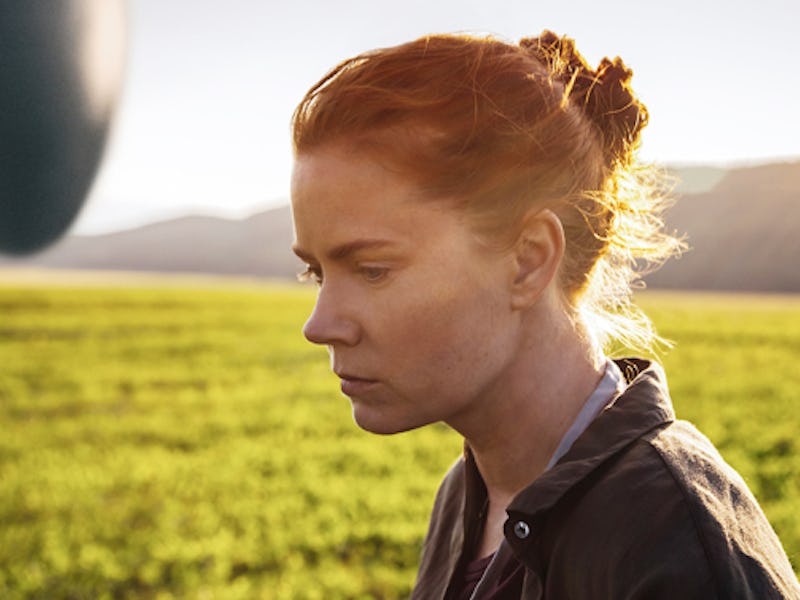Early Reviews Say ‘Arrival' Is "Dreamy, Freaky, and Audacious”
Everyone loves Amy Adams.

Denis Villeneuve’s Arrival arrived on day two of the Venice Film Festival to (mostly) staggeringly positive reviews. The film, which won’t be released widely in theaters until November 11, sits at a fantastic 100 percent approval rating on Rotten Tomatoes so far — and critics are using words like “dreamy, freaky, audacious,” and phrases like “big, somber, and grand” to describe it. So in plain language, it seems pretty damn great.
We got our first full look at Arrival on August 16 (discounting the TV spot on August 9, of course). It’s set for a wide release on Nov. 11, which The Hollywood Reporter notes is “significant in its distance from the summer popcorn field, instead going in among the end-of-year prestige pictures.” THR also calls it “a grownup sci-fi drama that sustains fear and tension while striking affecting chords on love and loss.”
Everyone else seems to agree.
Time calls Arrival “big, somber and grand,” giving — like most other reviewers — special props to Jóhann Jóhannsson’s ethereal, whale-sounds-inspired score and the stunning visual effects.
“The picture is intelligently and effectively crafted, one of those enterprises where the cinematography, sound design and score, as well as the special effects, melt into a seamless, organic whole.” (Time)
The reviews also dote on Amy Adams’s performance as linguist Dr. Louise Banks. The U.S. military tasks our heroine with interpreting an alien language and learning what the beings — dubbed heptapods — aboard 12 ships across the Earth are looking for. The Hollywood Reporter calls her performance “moving,” and credits her with anchoring the film in its entirety.
Meanwhile, The Playlist gives the film an A-, calling it “great science-fiction cinema” that combines the so often polarized left- and right-brain, shamelessly melding science with philosophy. It lets the usual annihilation panic and planet-wide militarization so common in invasion films take a backseat, with the main focus being on science and the human experience.
“The slow build to the grand reveal is the most impressive aspect of “Arrival, because most films that ask Big Questions flake out at supplying an answer. And thats only to be expected: if you really knew the secrets of the universe would your first thought be to write them into a screenplay? But Arrival gets better as it goes on, pursues its logic to its furthest extreme and beyond. It doesn’t just theorize, it comes to a conclusion.” (The Playlist)
Variety is really the only major news source that maintains a distinctly negative tone, calling the film “a solemnly fantastic tale of a highly enigmatic alien visit,” but ending with this:
“At its best, Arrival has an eerie grandeur, but if the film starts off as neo-Spielberg, it winds up as neo-Christopher Nolan meets neo-Terrence Malick — it turns into an ersatz mind-bender. You feel you’ve had a close encounter with what might have been an amazing movie, but not actual contact.”
Despite Variety’s less-than-stellar conclusion, we’re no less stoked about this film. There seems to be an overall positive tone contained within the plot’s narrative — a breath of fresh air in a world obsessed with post-apocalyptic narratives and in a genre where total destruction of cities and countries alike is the norm. November 11 can’t arrive soon enough.